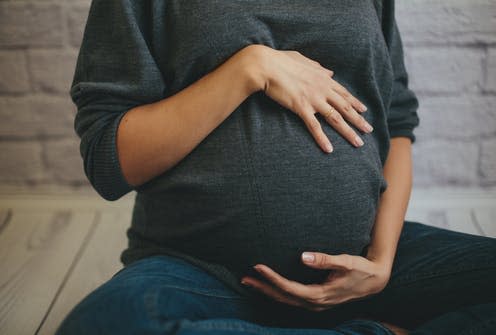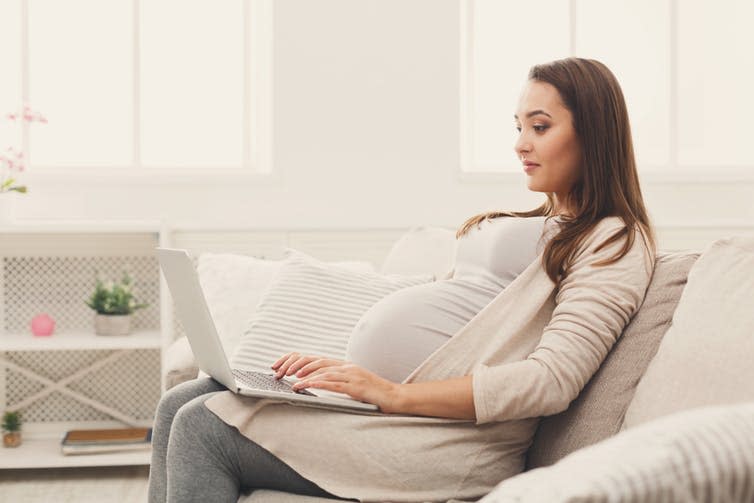Pregnant during the coronavirus crisis? Don't panic

Pregnancy and birth continue in times of crisis. There may be no perfectly convenient moment to give birth but for women who are pregnant in the midst of the global COVID-19 pandemic this must feel like a most uncertain period. So, what does the current situation mean for pregnant mothers in the UK?
Unlike other aspects of healthcare, maternity care cannot be postponed or cancelled. Maternity services are rapidly planning and adapting services to provide safe care while minimising the risk of spread of COVID-19.
Maternity services will inevitably experience some staff shortages as some midwives, doctors and other healthcare workers become ill or are required to self-isolate. The Royal College of Midwives (RCM) has called on NHS leaders to ringfence maternity services, amid a survey that suggested a shortage of midwives had doubled since the start of the pandemic.
It’s highly likely that pregnant women will experience some disruption to their planned maternity care. However, maternity care is an essential service and will continue to be a high priority.
Knowing the risk
There is currently no evidence to suggest that pregnant women are at any more risk of contracting coronavirus than the general population. And if infected, the risk of severe disease or death in healthy pregnant women and babies is very low. There is also currently no evidence to suggest that the virus causes an increased risk of miscarriage. While there is emerging evidence that the virus could potentially pass from an infected mother to her baby in the womb (further work is still needed to rule out infections that may have been passed after birth), this is based on a very small number of cases, and there appears to be no resultant major harmful effects for the baby.
Pregnant women in the UK are included in a “vulnerable” group, meaning they are advised to follow the guidance here. But many pregnant women may be asking why?
During pregnancy, women’s immune systems are altered, in particular during the third trimester (from 28 weeks). This can be associated with more severe symptoms in some other viruses. Based on current information the risk from COVID-19 appears to be low. So this advice is cautionary.
The advice for people in this group is to access medical assistance remotely where possible. But if you have a scheduled hospital or medical appointment talk to your GP, clinician, or midwife.
Antenatal care
Women may be anxious about keeping antenatal appointments for fear of coming into contact with the virus. Maternity services across the UK are rapidly making changes to minimise risk, including moving appointments online. The situation is evolving rapidly, and the most reliable and up-to-date advice is available here.
Antenatal classes provided by the NHS and voluntary organisations have been cancelled. However, The Positive Birth Movement has a Facebook page and links to various online resources and classes. And The National Childbirth Trust (NCT) has moved to online classes.
Routine appointments
Healthy pregnant women may receive fewer face-to-face appointments with their midwife or doctor, with more contact by telephone or online. Online consultations have been successfully in many rural areas of the UK for many years. Face-to-face appointments may take place in different community settings to avoid bringing women into hospital areas. Routine tests and scans should proceed as planned at present.

Women who have signs of COVID-19 or who are self-isolating are advised not to attend their antenatal appointment, and should inform their midwife and follow COVID-19 guidance about when to seek medical assistance. In most cases, appointments can safely be delayed for one or two weeks. This should be always be discussed with your midwife.
Having your baby
Many women will be asking: is it safe for me to go to hospital to have my baby? Maternity services are adapting facilities to look after women who have no symptoms separately from women who do have COVID-19. This may involve creating separate birthing areas.
Currently, homebirth services have been withdrawn in around a third of areas in a RCM survey, largely due to concerns about availability of ambulance transfer. Women planning a homebirth should discuss their plans with their midwife. Reports that more women are considering “free birthing” – birth without the support of a midwife or doctor – because they afraid of going to a hospital should know that this carries increased risks for mothers and babies, particularly at a time when emergency services may be stretched to the limit.
Birth units remain available in around two thirds of areas that replied to the RCM survey. This situation may change as more information becomes available and each area weighs up the risks and benefits.
Women will not be required to give birth without the support of a birth partner, although they may have to attend some antenatal appointments on their own. It may be sensible to have a back up birth partner. In some areas planned induction and caesareans may be delayed – where this is not considered to increase risks of mothers and babies.
Waterbirth is considered to be safe for women who are symptom free but not for women with symptoms or who have tested positive for COVID-19. This is because the virus is known to be present in faeces and birth pool water may become contaminated.

Following the birth, mothers and their babies should not be separated. Women should be encouraged to breastfeed.
And for other areas of your life while pregnant there are online resources that may help. For example, Maternity Action has information on coronavirus and rights at work during pregnancy.
The main thing during this unsettling period will be to stay safe, stay healthy, stay in touch with your support network and your midwife.
This article is republished from The Conversation under a Creative Commons license. Read the original article.

Helen Cheyne receives funding from The Scottish Government Chief Scientist Office and the National Institute for Health Research (NIHR) . She is affiliated with the Royal College of Midwives.


